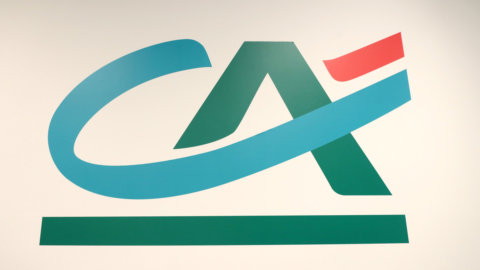In a moment of rare complexity for the Italian industry, grappling with crises that come from afar (the white goods industry, from Whirlpool to Embraco) or threaten to go far (auto components, see the immediate layoffs perhaps via e-mail from Gkn of Campo Bisenzio) a virtuous example of good capitalism. Like the Comer Industries, the multinational from Reggiolo, in the heart of the best of Italy, founded in the XNUMXs by the Storchi family to make the first transmissions, more mechanical craftsmanship than industry, today a partner of the main companies that deal with machinery for agriculture, industry and the production of renewable energy.
It is worth talking about because in recent days the company has signed an agreement for the acquisition of 100% of the share capital of WPG Holdco, parent company of the German Walterscheid Powertrain Group, leader in the Off-Highway sector (components and drive systems for the agricultural, industrial, construction and mining equipment sectors), present in 75 countries with a turnover of 396 million EUR.
But, no less important, the operation falls two years after entering Piazza Affari in Aim segment (which today, probably, is close to the multinational), a year after the publication of the sustainability report, the last step after the adoption of governance criteria up to the demands of the financial market. In short, a good example of the progress of a business system that in recent years has been able to anticipate the reforms that a part of the country is struggling to implement, trusting that a possible "Iri bis", a sovereign wealth fund or any other version of a " old-fashioned industrial policy” that could freeze the situation or, worse, make us go back to the way we were (and it wasn't very good).
On the contrary, as emerges from the excellent performance on the export markets, a range of companies has grown which collects the investor confidence, ready to accompany the industrial expansion that requires adequate capital solidity. This confidence is evident not only by observing the performance of the components of the FTSE MIB, the main market, but also and above all by looking at small and mid-cap companies. “It's above all here – he notes Massimo Trabattoni of Kairos – that in the last period we have seen the large part of the overperformance both towards i peers Europeans and to the FTSE MIB companies themselves. In particular, the AIM segment is experiencing a golden moment thanks to the entry of new investors, including foreign ones, who previously kept away from illiquid securities that were poorly covered by the financial community”.
On the contrary, with a turnover close to 5 billion, revenues up 3% and collections of 5,8 billion, Aim, the list dedicated to the fastest growing SMEs, is starting to close 2021 at the top . They are expected by December 25 new IPOs (from the current 148 to 173 listed) with a capitalization that should reach 9,1 billion euros.
The significant number of public offers on the matter, well above the historical average, supports the positive opinion small e mid cap Italian. "This suggests - continues the expert - that beyond the often contingent financial flows, there is a real appetite for real Italian economy assets, in particular for industrial names that make up the country's productive fabric". A'successful experience, therefore, made possible by the maturation of the financial centre. In particular:
- The offer has expanded which, in 5 years, has gone from 77 to 148 companies in July 2021 (+92%) while the capitalization has risen from 2,9 billion to 8,1 billion euros (+178% ).
- The main Corporate Governance parameters also improve: 100% of AIM companies have at least one independent member on the board (95% in 2016), 65% have at least one female share on the Board of Directors (50% in 2016), 89% presents the voting list for the appointment of the BoD (57% in 2016), 66% of the AIM companies presents at least one committee (58% in 2016).
- In the reference period 2016-2021, the average daily value increased (+436%), going from 24 thousand euros in 2016 to 127 thousand euros in July 20212.
- Trading days are increasing: +42% in 2021 compared to 2016 (62% vs 88% of total trading days);
- The share of AIM companies with coverage by analysts grows to 81% (55% in 2016), given that it also benefits from the positive impact of the revision of the legislation which established the obligation of research (equity research) for issuers listed after 3 January 2018.
- operations on the secondary market are increasing: in the first half of 2021 capital increases were issued for a value of 104 million euro, up by +148% compared to 2016 (42 million euro), plus bond loans for an amount equal to 150 million euros (+200% compared to 2016).
Not least, as he points out Anna Lambiase CEO of Ir Top Consulting to whom we owe the research data, another element deserves to be underlined: "In 2020, the companies employ approximately 19.600 employees, with an average growth of +23% compared to the same perimeter in the previous year".
The combination of industrial project, management determination and incoming financial flows is one of the winning formulas for getting out of the doldrums of the job crisis with almost no cost to the public coffers. "To support a lasting growth of the equity capital market - Lambiase insists - it is necessary to make the tax credit on listing costs introduced by the MISE a structural measure to permanently favor the investment programs of SMEs". In full expansion because, concludes the CEO of Ir Top, "the estimate for 2021 is +57% in terms of capitalization, a number of target companies as at 31 December 2021 of 173 (+25% compared to 2020) and a total of new IPOs which will amount to 2021 in 35 as a whole, playing a fundamental role in the structure of national stock markets, also following the merger of Borsa Italiana with Euronext.”





